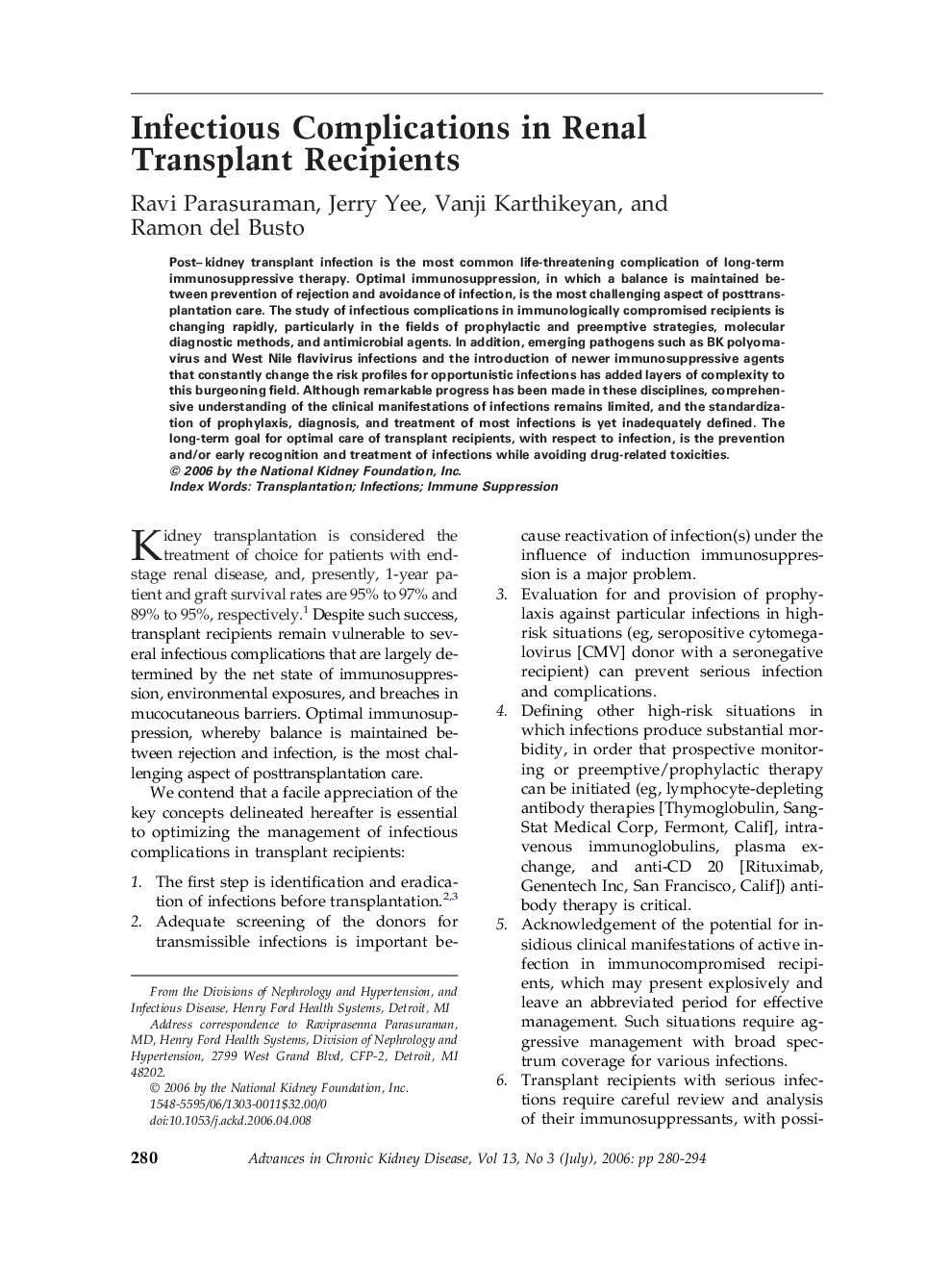| Article ID | Journal | Published Year | Pages | File Type |
|---|---|---|---|---|
| 3847008 | Advances in Chronic Kidney Disease | 2006 | 15 Pages |
Abstract
Post-kidney transplant infection is the most common life-threatening complication of long-term immunosuppressive therapy. Optimal immunosuppression, in which a balance is maintained between prevention of rejection and avoidance of infection, is the most challenging aspect of posttransplantation care. The study of infectious complications in immunologically compromised recipients is changing rapidly, particularly in the fields of prophylactic and preemptive strategies, molecular diagnostic methods, and antimicrobial agents. In addition, emerging pathogens such as BK polyomavirus and West Nile flavivirus infections and the introduction of newer immunosuppressive agents that constantly change the risk profiles for opportunistic infections has added layers of complexity to this burgeoning field. Although remarkable progress has been made in these disciplines, comprehensive understanding of the clinical manifestations of infections remains limited, and the standardization of prophylaxis, diagnosis, and treatment of most infections is yet inadequately defined. The long-term goal for optimal care of transplant recipients, with respect to infection, is the prevention and/or early recognition and treatment of infections while avoiding drug-related toxicities.
Related Topics
Health Sciences
Medicine and Dentistry
Nephrology
Authors
Ravi Parasuraman, Jerry Yee, Vanji Karthikeyan, Ramon del Busto,
